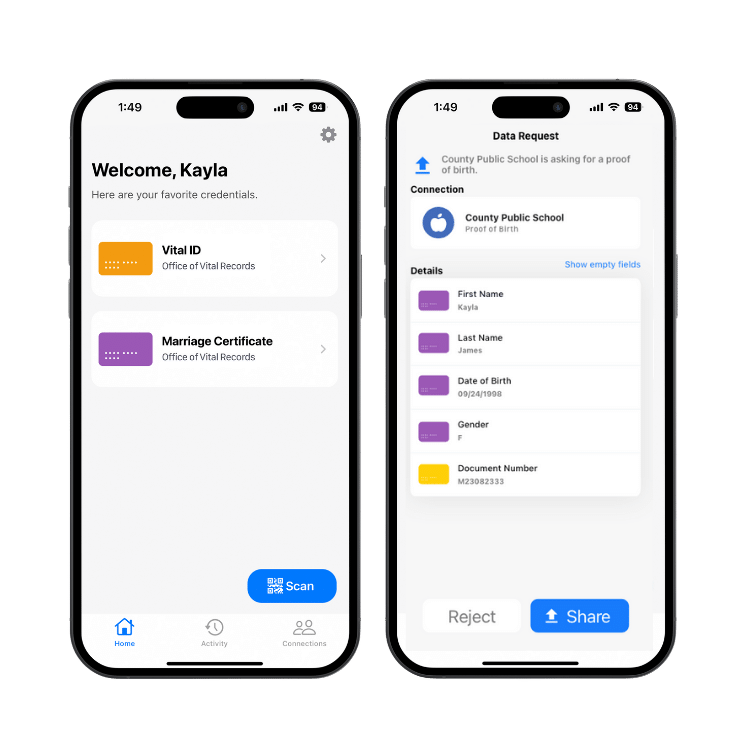Digital Vital Event Credentialing
Creating a secure, private, and easy to use digital vital records ecosystem.
Voyatek’s Decentralized Identity for Government (DIG) solution is a comprehensive platform that enables a more secure, accessible, and citizen-centric approach to issuing and verifying digital vital events.
With DIG, vital records agencies issue digital vital records, including birth and death certificates, that can be securely stored and shared by residents via a digital wallet. Plus, our solution easily integrates with existing vital records management systems (VRMS) and state program/eligibility enrollment systems.

A Better Resident Experience
We make it quick and simple for residents to receive, store, and share digital vital records, without putting their privacy or security at risk. With our solution, residents can:
- Easily get a digital vital record – Residents can be issued a digital vital record in addition to traditional paper records, simplifying transactions with all types of public sector institutions.
- Safely store their credentials – Users can safely store their credentials in a digital wallet and/or in state digital portals.
- Securely share records – Residents can securely share their records with government agencies, trusted organizations, or individuals without the risk of identity theft or data loss.


Simplifying Verification Across State and Local Agencies
Leveraging distributed ledger technology, DIG allows government agencies to independently verify residents’ personal information without storing or managing any data.
- Validate in minutes – Agencies can instantly verify the authenticity of vital records, eliminating the need for manual verification and paperwork.
- Minimize Security Risks – Since agencies no longer need to store troves of residents’ personal identifying information (PII), they’re less vulnerable to data breaches and ransomware attacks.
- Reduce costs – Agencies can significantly decrease the amount of time, resources, and funds dedicated to verifying resident information or strengthening database security.

